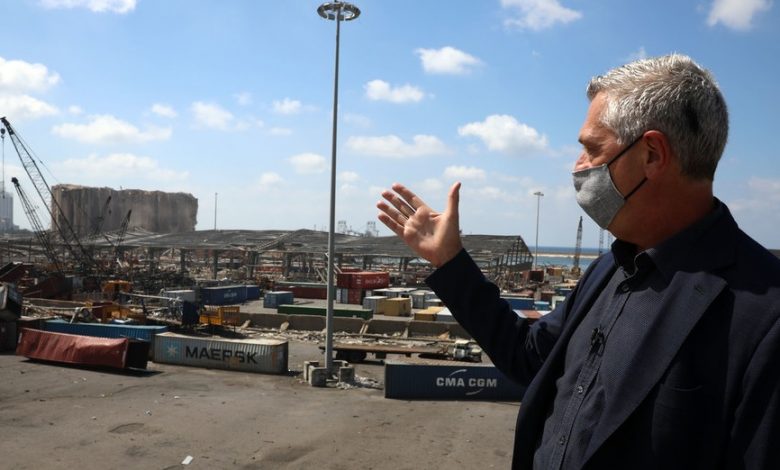
The head of the UN refugee agency (UNHCR) is in Lebanon to drive home the message of solidarity with all those affected by the devastating blast a fortnight ago, reaching out to both Lebanese and the many refugees and migrants sheltering in the country.
“Operations in support of Lebanese communities and refugees remain a top priority for UNHCR”, Spokesperson for the High Commissioner for Refugees, Babar Baloch, told journalists at a regular press briefing in Geneva on Tuesday.
Through this first field mission to Lebanon since the COVID-19 first wave lockdown, High Commissioner Filippo Grandi’s four-day visit is “a reaffirmation of UNHCR’s solidarity and commitment to stand by Lebanon”, added Mr. Baloch.
Three troubling elements
Relative to its national population, Lebanon hosts the largest number of refugees in the world.
Beyond the immediate and longer-term impact of a devastating explosion on 4 August in Beirut’s main port that brought the capital to its knees, UNHCR is concerned about the combined effect of a severe and prolonged economic crisis and the COVID-19 pandemic in the country.
“These three factors together are harming the most vulnerable and poorest parts of the population throughout the country”, Mr. Baloch said.
Grandi on the ground
After witnessing ongoing relief efforts in the most affected neighborhoods, the High Commissioner is dedicating the remainder of his time in Lebanon reviewing UNHCR’s overall humanitarian response in other parts of the country.
“UNHCR is scaling up its response to all communities affected by the blast in Beirut to provide immediate relief, shelter and protection support”, according to the spokesperson.
Together with its partners, the agency is providing emergency shelter materials to those most in need, among an estimated 200,000 households that were severely damaged in the deadly explosions.
“UNHCR is also conducting psychological first aid and other urgent measures for the protection of those affected”, Mr. Baloch added.
On the agenda
The UNHCR chief will also travel to northern Lebanon and the Bekaa Valley, where he will visit public hospitals to see for himself the work the agency is doing to expand bed and ICU capacities, that the agency had put in place to help the COVID-19 pandemic response.
“UNHCR is further scaling up this programme given that local hospitals are overwhelmed”, informed Mr. Baloch.
He said the High Commissioner will also visit Syrian refugees, who have been severely affected by the economic crisis and COVID-19 measures, “living a razor-edge existence, struggling to make ends meet”.
SOURCE: news.un.org







